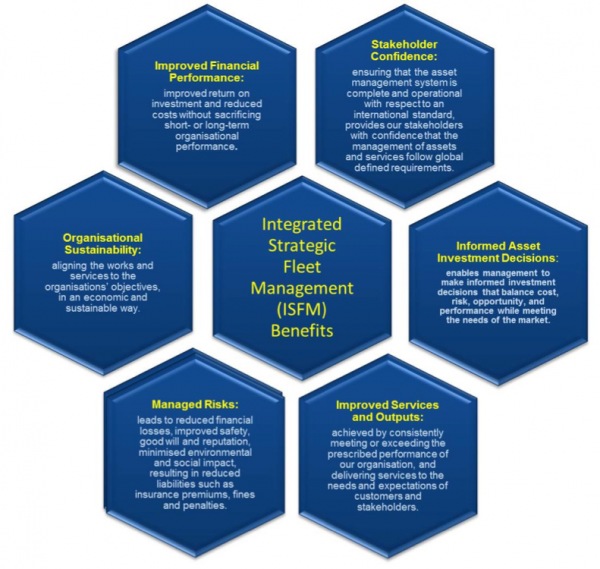Strategic fleet management is a core value of Sheppard Earthmoving. We undertake it to incorporate predictability, reliability and accountability into our entire equipment hire management process and deliver the greatest value to our customers. An effective strategic fleet management system underpins the successful delivery of best practice, compliant and high quality services.
Integrated Strategic Fleet Management (ISFM) brings together economics, mechanics, information technology and sustainability elements to form a holistic approach to the delivery of our earthworks and site preparation fleet assets. It focuses on the long term direction for overall management of our fleet assets, including fleet policy development, safety programs initiatives, lifecycle cost analysis, implementation of a corporate sustainability program to the establishment metrics, while also considering the immediate fleet operational matters. It involves coordinated and optimised planning, fleet selection, acquisition, utilisation, maintenance and ultimate disposal and renewal of the appropriate asset. Our ISFM consists of the following two elements:
Our Integrated Strategic Fleet Management system is built on the foundation of Enterprise Asset Management combined with ISO 55000, an international standard for the effective and efficient management of physical assets. The development and application of our asset management system in accordance with ISO 55000 provides assurance that our organisation can achieve its intended outcomes consistently and sustainably over time.
The potential key benefits that this compliance provides our organisation and stakeholders include:

- Improved financial performance: improved return on investment and reduced costs without sacrificing short- or long-term organisational performance.
- Stakeholder confidence: ensuring that the asset management system is complete and operational with respect to an international standard, provides our stakeholders with confidence that the management of assets and services follow global defined requirements.
- Organisational sustainability: aligning the works and services to the organisations objectives, in an economic and sustainable way.
- Informed asset investment decisions: enables management to make informed investment decisions that balance cost, risk, opportunity, and performance.
- Managed risk: leads to reduced financial losses, improved safety, good will and reputation, minimised environmental and social impact, resulting in reduced liabilities such as insurance premiums, fines and penalties.
- Improved services and outputs: achieved by consistently meeting or exceeding the prescribed performance of our organisation, and delivering services to the needs and expectations of customers and stakeholders.
We are currently investigating various fleet technology solutions that can deliver meaningful cost savings and operating efficiencies for our fleet assets.
Adopting sustainable operating practices is becoming more important to our business and this solution will shine a light on our individual assets by measuring, monitoring and reporting on driver efficiency and vehicle data.
This information can then be used to provide driver/operator training, coaching and awareness as well as to reduce waste, cut fuel costs, allow for proactive fleet maintenance and ensure maximum fleet utilisation.
The resulting economies and efficiencies will allow us to focus on our customer, improve and grow our business and ensure that we are sustainable into the future.
